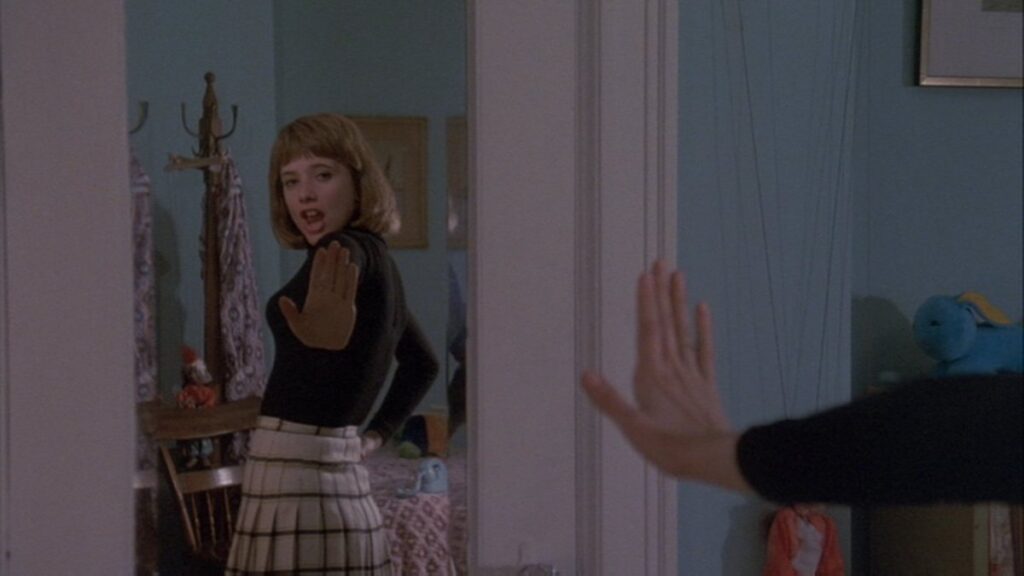
Bruce Springsteen’s songs from his albums Greetings From Asbury Park, NJ through Born To Run tell the stories of teenagers, New Jersey youth, caught between the sixties and seventies. Springsteen has, since his career began, been the all American storyteller, the voice of teens riding in hot rods, young lovers at a dance, and hoodlums prowling the boardwalk. When John Sayles uses a Springsteen song in Baby It’s You (1983) it isn’t meant to be period accurate, it’s a form of narration. When Springsteen comes howling over the soundtrack the internal life of a character has just been given voice. Springsteen’s music lends a depth to character and invites us to invest that character with our own emotional baggage that comes with a particular song. Springstreen is a vital and immediate conduit in Sayles’ hands to reimagine our youth as that of these characters.
Baby It’s You is a masterpiece of subtle cinematic gestures that tell a familiar coming of age story in a manner in which that tale is very rarely told; frankly and honestly. Michael Ballhaus’ camera and John Sayles’ direction don’t opt for melodramatic flourishes or bold spectacle, Sayles prefers things intimate, as they are, between one actor and another. A cue from Springsteen is enough to open up this bygone age, to reinvigorate the mid sixties, to make it familiar and urgent.
Baby It’s You is about a boy known as Sheik (Vincent Spano) who is in love with a girl named Jill (Rosanna Arquette). They’re opposites in every imaginable way yet they love each other. John Sayles is only interested in how that love changes, how it survives the turmoil of high school and college. The changes to this love aren’t fluid, they come in extremes, scene to scene, like the song changes on one of the Boss’ LPs. Sayles is a screenwriter first and foremost and his style reflects that. Every sequence is economized, communicating only the necessary information before a cut to the next scene.
If Sayles is the author and Springsteen the Greek chorus, then Rosanna Arquette is the heart of the film. Her performance is so natural, yet electrifying that one can never take one’s eyes off of her. She successfully conveys Jill’s growth from high school to Sarah Lawrence undergrad dramatically, but in such minute increments that it’s hardly discernible until after the film has finished. Sayles gives Arquette so many little inconsequential moments that just serve to make her character more real and it’s beautiful. One of the most memorable scenes in this film for me hardly even lasts forty-five seconds. In this scene, home from school, Jill lip syncs to a record while dancing in front of a mirror. In another director’s or actor’s hands this would have felt like a gimmick, but these two pull it off.
I rarely do this, but if I was going to rank John Sayles’ films I’d put Baby It’s You right behind Lone Star (1996). Few filmmakers deal in human drama honestly, let alone frankly, and it goes a long way in making a film something more than a diversion or an aesthetic experiment. Honestly I’m just surprised that Baby It’s You isn’t more popular.
